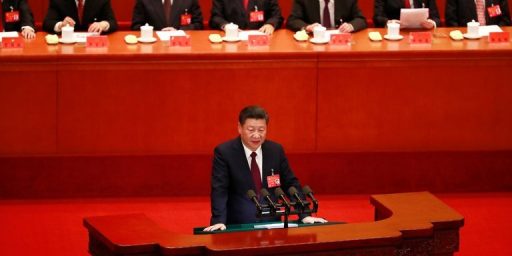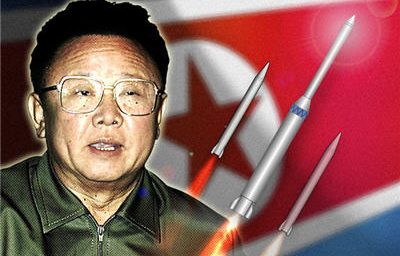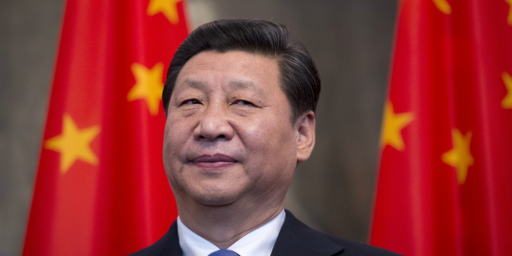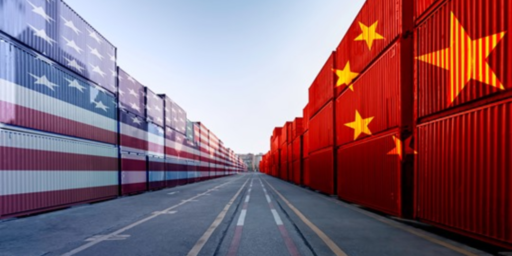China: Far from Reformed
The Washington Post offers a glimpse into recent Chinese politics. It isn’t a pretty picture:
Hu Tightens Party’s Grip On Power
More than two years after taking office amid uncertainty about his political views, Chinese President Hu Jintao is emerging as an unyielding leader determined to preserve the Communist Party’s monopoly on power and willing to impose new limits on speech and other civil liberties to do it, according to party officials, journalists and analysts.
Some say Hu has cast himself as a hard-liner to consolidate his position after a delicate leadership transition and could still lead the party in a more open direction. There is a growing consensus inside and outside the government, however, that the 62-year-old former engineer believes the party should strengthen its rule by improving its traditional mechanisms of governance, not by introducing democratic reforms.
Hu has placed particular emphasis on tightening the party’s control over public opinion, presiding over a crackdown to restore discipline to state media and intimidate dissident intellectuals. He has also gone further than his predecessor, Jiang Zemin, by adopting new measures to regulate discussions on university Internet sites and the activities of nongovernmental organizations.
The crackdown has been a great disappointment to scholars and party officials who welcomed Hu’s rise to power in the hope he might be more open to political reform than Jiang. After giving him the benefit of the doubt during a long political honeymoon, many have concluded Hu is an ideologically rigid and exceedingly cautious apparatchik who recognizes the party’s authoritarian system is in trouble but wants to repair it.
In 2003, Business Week considered fairly seriously the idea that Hu might be the next Mikhail Gorbachev. Others, like the Weekly Standard (as well as non-conservatives), were more doubtful. Indeed, the Heritage Foundation wrote:
Hu Jintao is less likely to become a Chinese Gorbachev–i.e. a leader open to a fundamental change in the system–than he is to be a Chinese Putin whose overriding goal is to manage economic reforms in a way least likely to threaten his political power.
Unfortunately for the world, this prediction seems to be confirmed.





